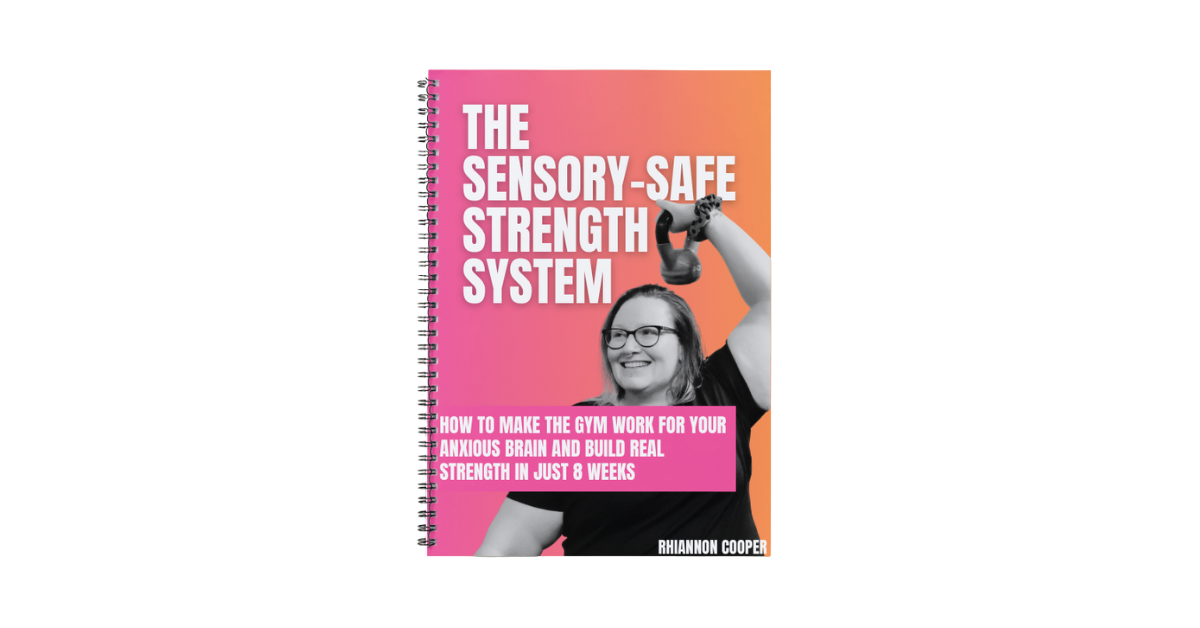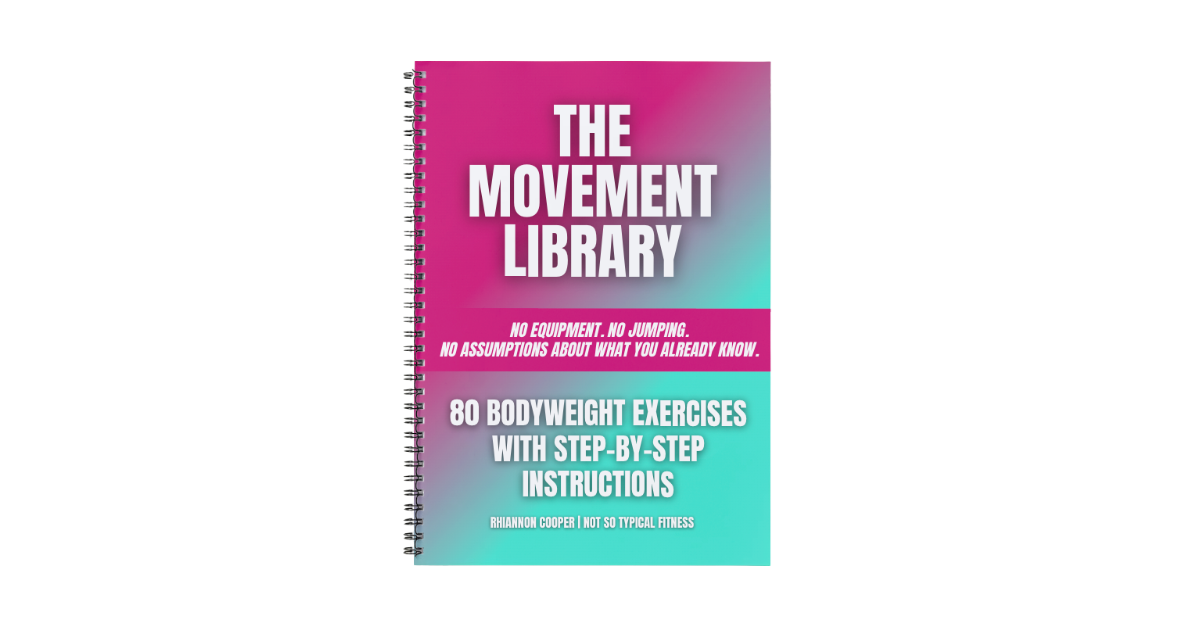THE 5 MISSING PIECES THAT SEPARATE “DREADING THE GYM” FROM “ACTUALLY GOING CONSISTENTLY”
The 5 Essential Elements Anxious People Need (That Generic Gym Programs Don’t Provide)
ABSOLUTE CLARITY — Zero‑Decision Workout Plans
What It Is
Complete workout cards that tell you EXACTLY what to do, in what order, with what weight, for how many reps—eliminating all executive function drain.
Why It Matters
When you’re already using massive cognitive resources to manage sensory input and social navigation, having to ALSO figure out your workout plan leads to burnout and avoidance.
Without It
You stand there overwhelmed, do random exercises with no plan, leave feeling like you accomplished nothing, and convince yourself the gym “just isn’t for you.”
SENSORY SURVIVAL — Practical Overstimulation Management
What It Is
Specific, tested strategies for managing sweat, sound, smell, textures, and visual overwhelm that actually work (not just “try headphones”).
Why It Matters
Sensory overload isn’t weakness or pickiness—it’s a neurological difference that makes gym environments genuinely overwhelming.
Without It
Every gym session feels like survival mode, your nervous system stays dysregulated, and you associate exercise with suffering instead of strength.
SOCIAL SCRIPTS — Gym Etiquette Decoded
What It Is
Word-for-word scripts for every gym interaction (asking to work in, declining help, responding to small talk, what to do if you mess up).
Why It Matters
Not knowing the “unwritten rules” creates constant anxiety that prevents you from focusing on your actual workout.
Without It
You avoid equipment others are using even when you need it, miss workouts because the gym is “too crowded,” and the social anxiety becomes more exhausting than the exercise.
ROUTINE ARCHITECTURE — Making Consistency Automatic
What It Is
Implementation strategies specifically designed for autistic brains, including visual schedules, reminder systems, and accommodation planning.
Why It Matters
Motivation is unreliable for everyone, but it’s especially unreliable for anxious brains—you need systems that work WITH your neurology, not against it.
Without It
You rely on willpower and motivation, which inevitably fail, then you shame yourself for “not sticking with it,” reinforcing the belief that you “just can’t do this.”
BODY AWARENESS — Interoception Training
What It Is
Guided practice for recognising your body’s signals (fatigue vs. discomfort vs. pain, hunger vs. nausea, energy levels vs. sensory overload).
Why It Matters
Many autistic people struggle with interoception, making it hard to know when to push, when to rest, and when something’s actually wrong.
Without It
You either push way too hard and burn out / get injured, or you never push hard enough to see results, never understanding what “the right amount” feels like.
The Transformation You Can Expect
Don't let gym anxiety and sensory overload continue stealing your strength and confidence. Your fitness journey can be so much better than this—you just need the right system to make it happen.
Before The Sensory-Safe Strength System:
❌ Feeling paralysed with anxiety before every gym session (or avoiding it entirely)
❌ Standing around confused about what to do, which machines to use, or if you're doing it "right"
❌ Sensory overload from sweat, sounds, smells, and crowds making every workout feel like torture
❌ No idea if someone's about to yell at you for using equipment wrong or breaking some unwritten rule
❌ Cancelling memberships, starting and stopping, never building any actual strength or consistency
❌ Feeling like everyone else can just "figure it out" while you're fundamentally broken or lazy
After The Sensory-Safe Strength System:
✅ Walking into the gym with your headphones on, workout card ready, knowing EXACTLY what you're doing today
✅ Following a clear, structured plan that requires zero decisions or executive function
✅ Managing sensory input with proven strategies that actually work for your nervous system
✅ Having word-for-word scripts for any social situation that comes up (and feeling confident using them)
✅ Going consistently 3x per week, seeing real strength gains, and actually enjoying the process
✅ Understanding that your brain works differently—and having a system specifically designed for how YOU function



